Why Pfizer leading the decline in Healthcare?
On June 26, the pharmaceutical sector of the US stock market experienced a general decline. The pharmaceutical giant $Pfizer(PFE)$ , led the decline with a decrease of 3.6% due to its announcement of discontinuing the development of its experimental weight loss and diabetes drug, lotiglipron.
This highly anticipated drug showed elevated liver enzymes in experimental patients during mid-term clinical trials, indicating potential liver cell damage, although no liver-related symptoms or side effects were observed in the patients. Pfizer stated that it will now focus on another oral obesity drug called danuglipron, which is undergoing a fully recruited Phase II clinical trial. According to the results published last month, type 2 diabetes patients experienced weight loss after taking high doses of danuglipron twice a day for 16 weeks. The final plan for the Phase III clinical trial of danuglipron is expected to be completed by the end of 2023.
Why does discontinuing this weight loss drug pipeline have a significant impact on the company's stock price?
First, drugs that have entered mid-term clinical trials often have a relatively higher chance of success, so the market tends to believe that the failure of this pipeline will have a considerable impact. Pfizer was the first company to announce the advancement of a small-molecule oral weight loss drug into the later stages of clinical trials. The pipeline includes two varieties: danuglipron and lotiglipron. Danuglipron requires twice-daily dosing, while lotiglipron only needs to be taken once a day, making lotiglipron more convenient. Therefore, the market has a more favorable view of lotiglipron. Although Pfizer will continue to progress with the development of danuglipron and optimize it for once-daily dosing, there are doubts in the market about whether it can achieve the same efficacy in subsequent experiments.
Second, Pfizer is losing its advantage in the small-molecule competition. The weight loss and diabetes drug pipeline is not exclusive to Pfizer; $Eli Lilly(LLY)$ and $Novo-Nordisk A/S(NVO)$ also have similar pipelines. Although Pfizer was the first to enter Phase II clinical trials, Lilly's orforglipron has now surpassed Pfizer and entered Phase III. Therefore, Pfizer's setback is also seen by the market as a missed opportunity.
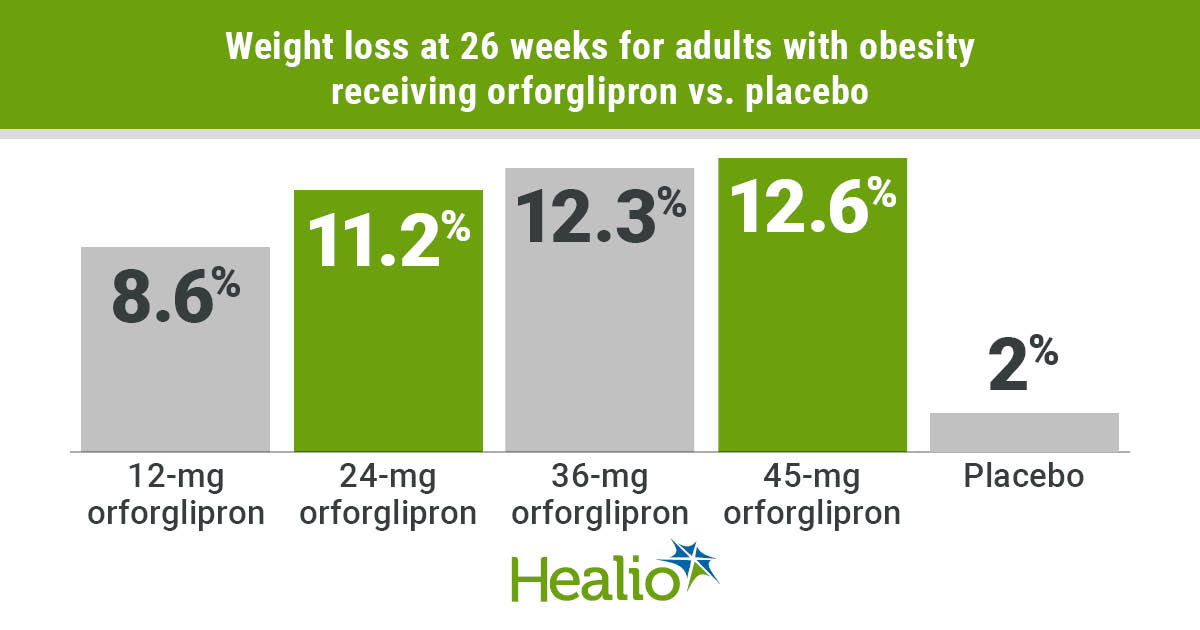
In fact, this race is quite competitive, with over 150 new drugs targeting GLP-1 being studied, covering various diseases such as type 2 diabetes, obesity, non-alcoholic fatty liver disease, and Alzheimer's. The most popular and industry benchmark is Novo Nordisk's semaglutide, which is already on the market. It lowers blood sugar levels by mimicking the action of GLP-1 and is an injectable drug that only needs to be administered once a week, providing sustained effects for several days.
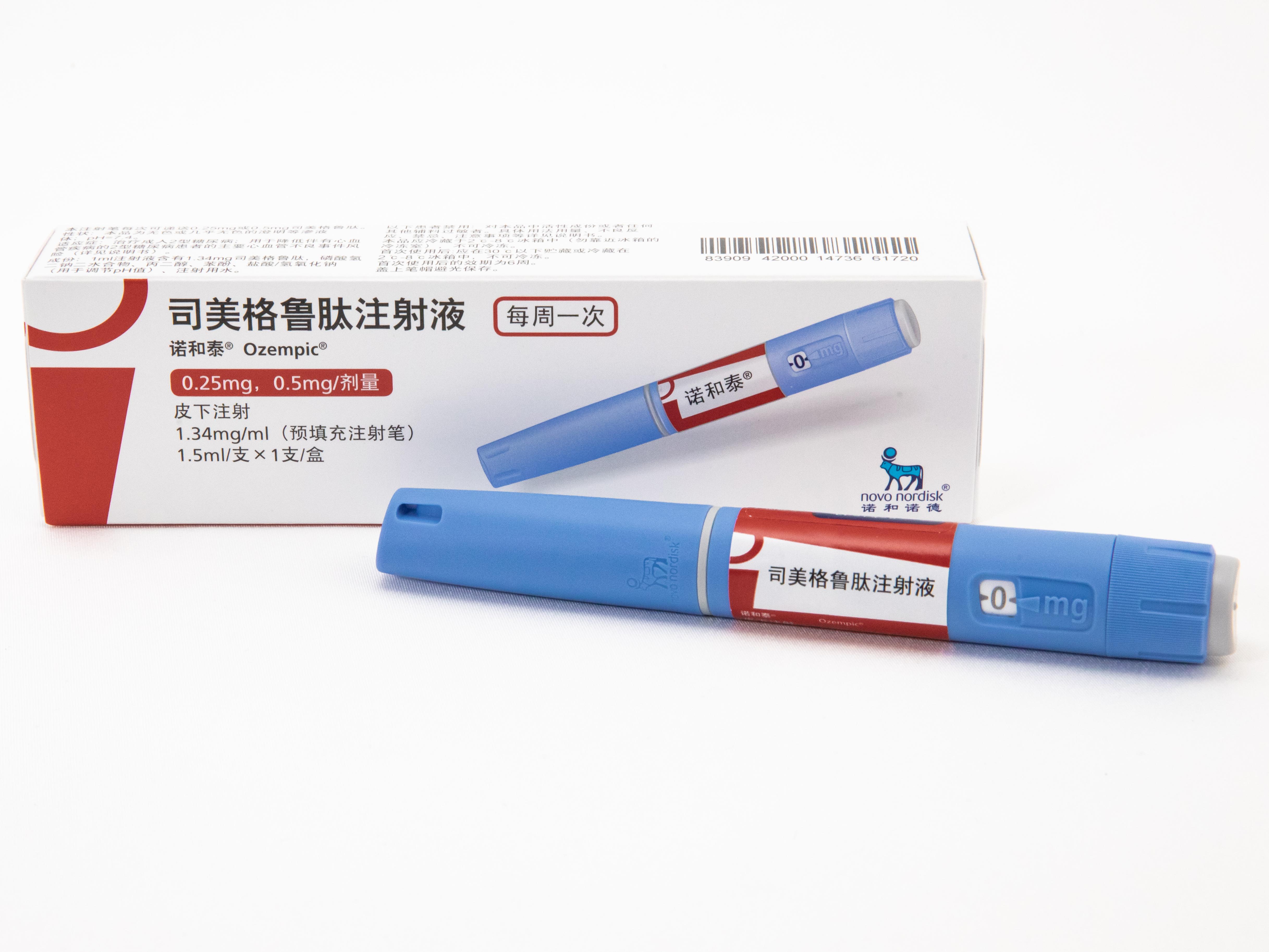
Pfizer had ambitious plans for the small-molecule drug market, aiming to capture $10 billion out of the $27 billion market. After all, oral drugs have different advantages compared to injectable drugs, and the target market also has variations. However, if the efficacy and safety of these small-molecule oral drugs do not match the current industry benchmark, even after completing clinical trials and entering the market, they will struggle to gain a larger market share.
What is Pfizer's current situation? Since the beginning of the year, Pfizer's stock price has declined by 27%, while the $Health Care Select Sector SPDR Fund(XLV)$ has only decreased by 2.5%, and the $iShares Biotechnology ETF(IBB)$ has only declined by 3.21%. Additionally, Novo Nordisk's market value has surpassed Pfizer, making it the largest pure pharmaceutical company by market capitalization.
Why does Pfizer, as the industry leader, experience such significant pullbacks?
We believe that the pessimistic sentiment mainly stems from concerns about future growth prospects following COVID-19 and the potential impact of uncertain acquisition strategies on the company's financial statements.
As we all know, Pfizer's Paxlovid achieved explosive revenue during the COVID-19 period due to its high pricing and strong demand. It was also the highest-selling small molecule drug globally in 2022, surpassing Eliquis, the second-place drug, by over 60%.
Thanks to the COVID-19 pandemic, Pfizer had the fortune of experiencing a surge in performance with this medication. Additionally, Pfizer made significant profits from COVID-19 drugs and vaccines, with over half of its revenue in 2022 coming from these sources. The company's stock price saw a remarkable 66% increase in 2021.
However, what goes up must come down, and once the impact of COVID-19 subsided, these gains naturally diminished.
Moreover, Pfizer is a company that relies on acquisitions to expand its pipeline of potential assets. The act of acquiring other companies often involves higher financial leverage and carries the risk of drug launches falling short of expectations.
Therefore, after investors made substantial profits from Pfizer for two years, they decisively pulled back, not because they undervalue the company's accumulated savings (which could include higher dividends and share buybacks), but rather due to concerns about future revenues falling short of expectations.
Currently, it appears that the market may have overestimated the post-2023 COVID-19 revenue. Of course, the pharmaceutical industry is highly uncertain, and there is always the possibility of the COVID-19 virus undergoing further mutations and forming new variants, which could provide Pfizer with an opportunity to step in once again.
Disclaimer: Investing carries risk. This is not financial advice. The above content should not be regarded as an offer, recommendation, or solicitation on acquiring or disposing of any financial products, any associated discussions, comments, or posts by author or other users should not be considered as such either. It is solely for general information purpose only, which does not consider your own investment objectives, financial situations or needs. TTM assumes no responsibility or warranty for the accuracy and completeness of the information, investors should do their own research and may seek professional advice before investing.

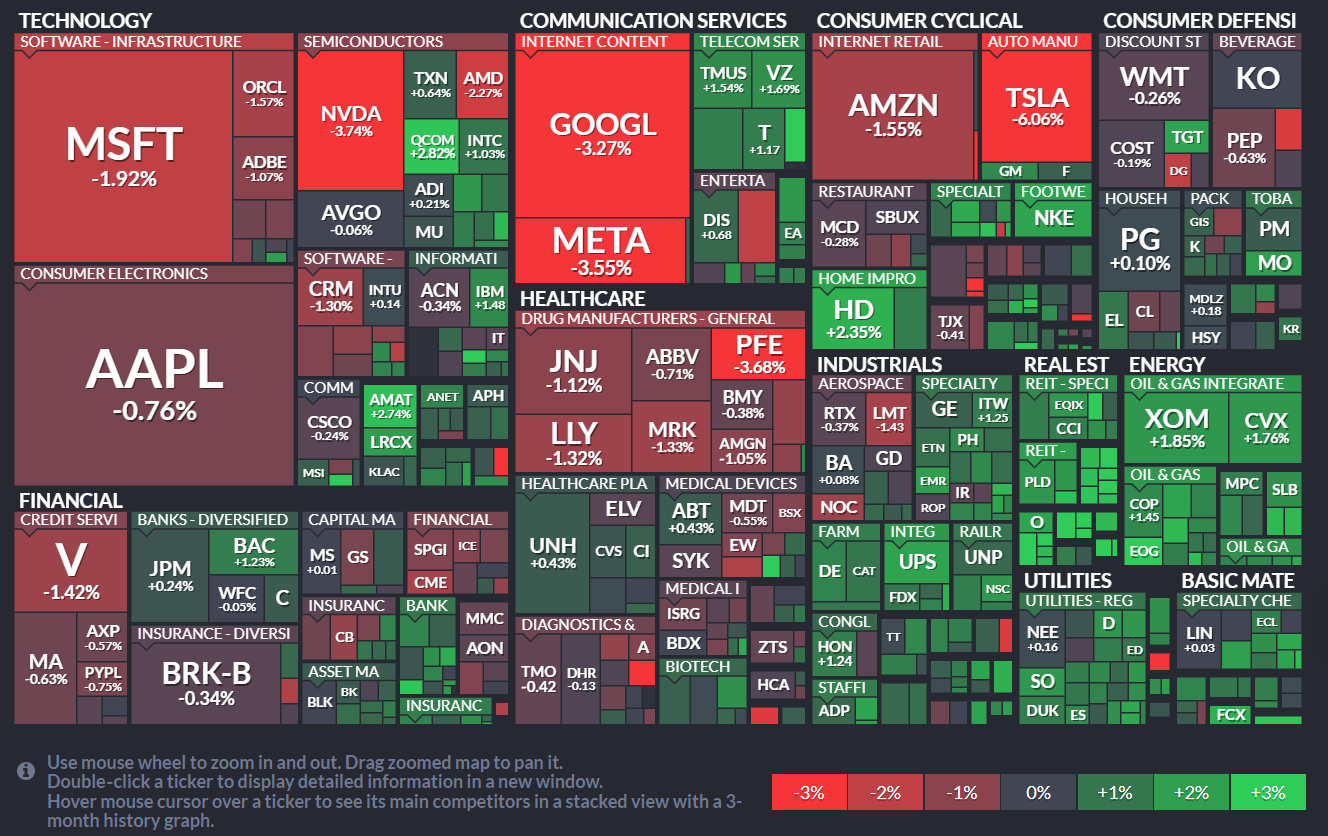
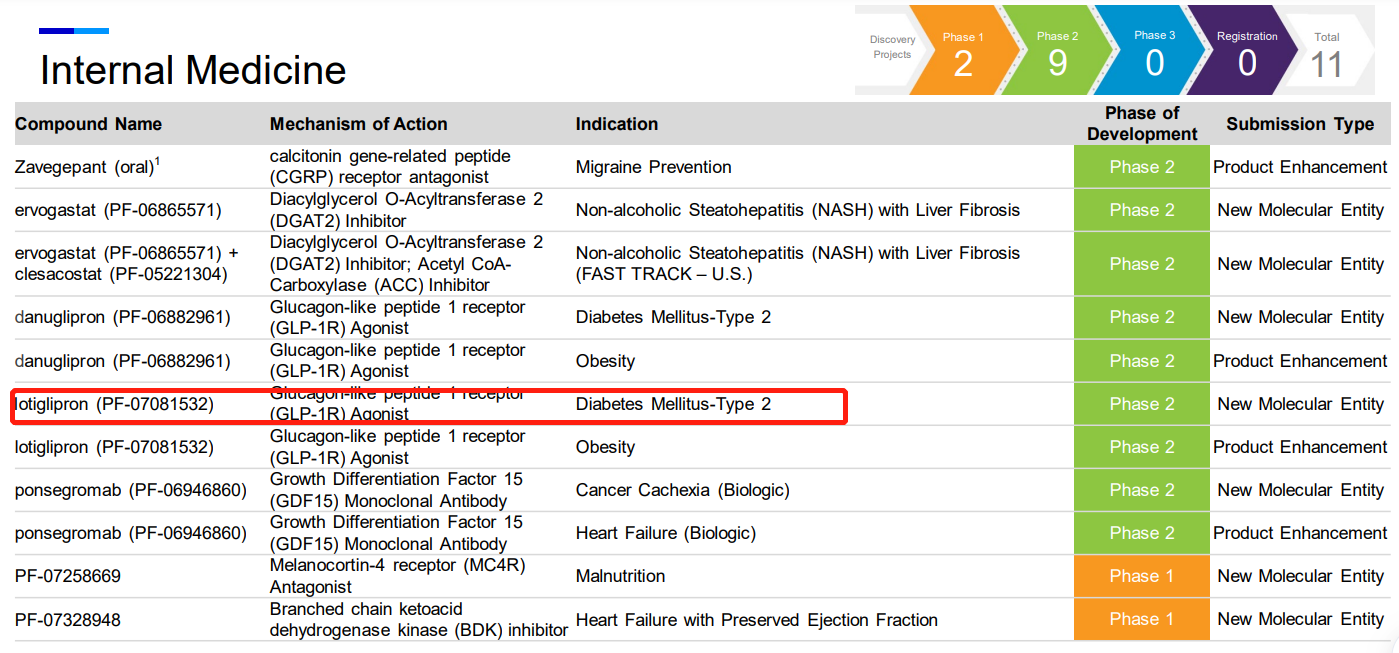
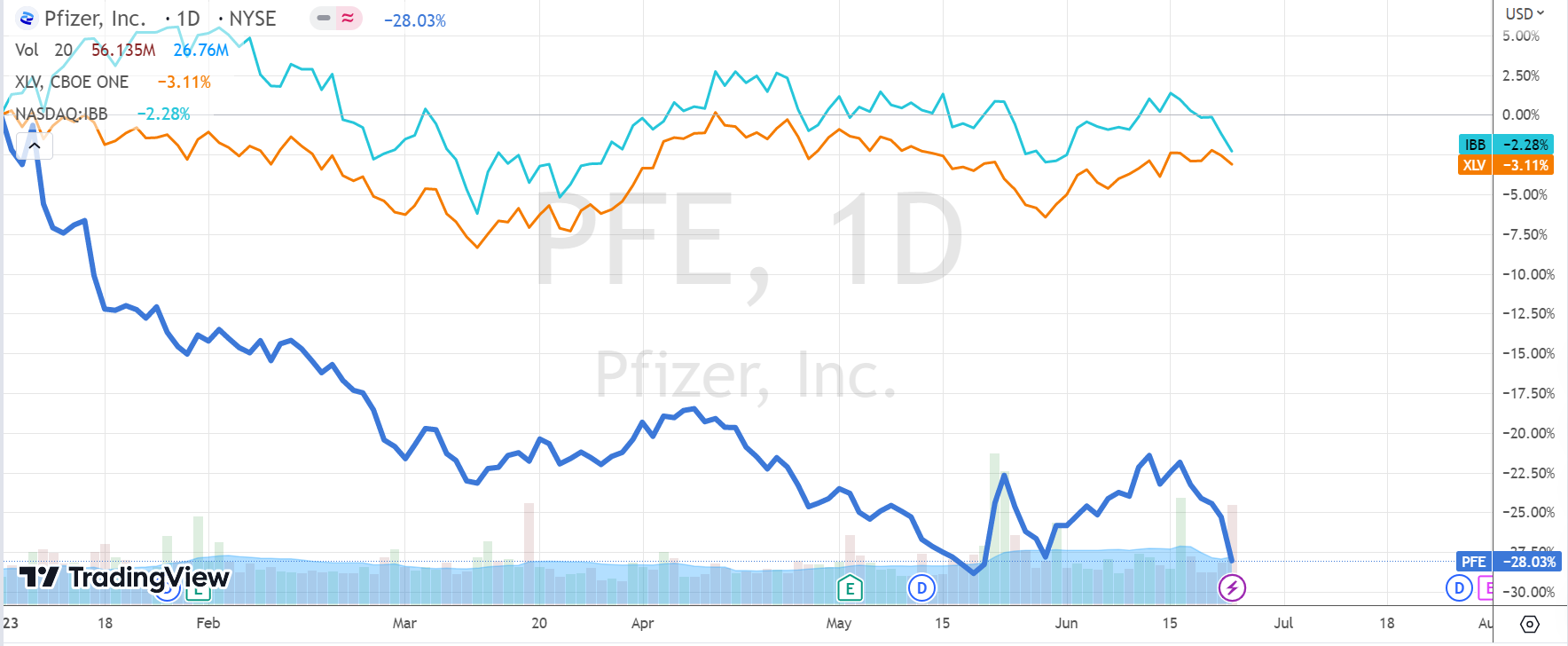
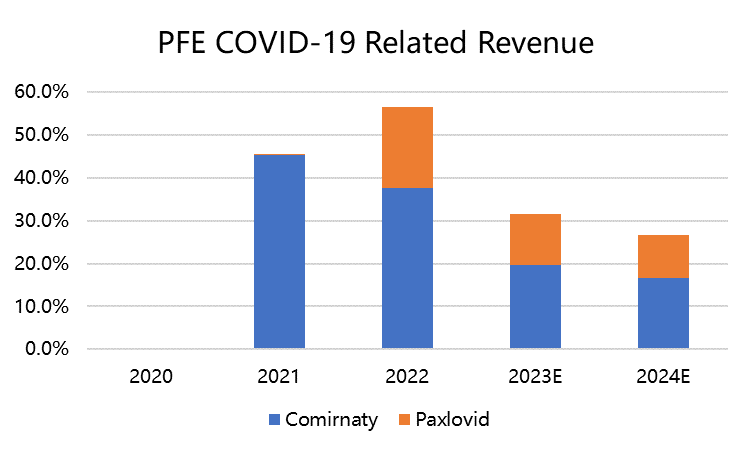
Pfizer's stock took a hit with the weight loss drug gone. Time to shed those tears
The market wasn't too thrilled with Pfizer's weight loss drug disappearing. It's a heavy blow.
Pfizer's stock dropped like a dumbbell after ditching the weight loss drug.
Pfizer's "lotiglipron" fell flat, leaving investors feeling a little heavy
Oh no! Pfizer's weight loss drug got a belly flop!
Great ariticle, would you like to share it?